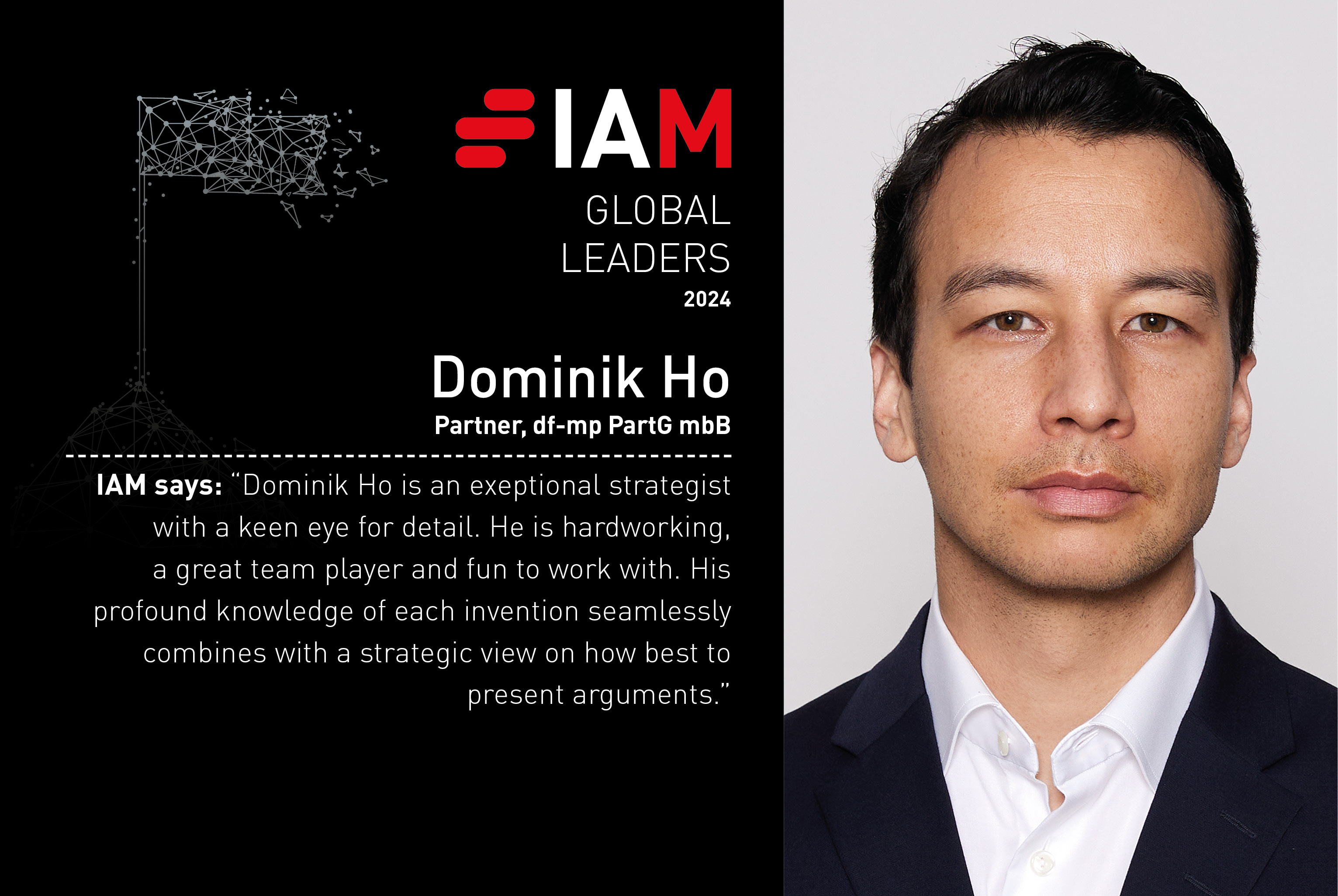Dominik Ho
 What excites you the most about working in intellectual property, and what advice would you give to those considering pursuing a legal career in this field?
What excites you the most about working in intellectual property, and what advice would you give to those considering pursuing a legal career in this field?
IP law is a realm where the thrill lies in the variety. In this field, each case is a unique puzzle and a blend of intricate technology and nuanced legal principles. There are no set pieces; rather, every case demands a deep dive into the specifics, seeking the facts that could tip the scales in the client’s favour. This diversity is what makes working in intellectual property so exhilarating. It is not a routine, but a series of complex challenges that keep the mind sharp and the work rewarding.
To those contemplating a legal career in intellectual property, my advice is simple but crucial: be relentless. The key is dedication, consistently investing effort in every case. IP law is not about the occasional burst of brilliance; it is about sustained commitment that ultimately forges a great attorney.
As a partner at df-mp, what does inspiring and effective leadership look like to you?
Effective leadership, in my view, is defined by commitment. What sets df-mp apart is the deep involvement of all partners in case work. Leadership is not just a directive from above, it is a commitment shown by example. Every partner at our firm does not just oversee, they actively participate in the cases. It is about challenging every team member to bring their ‘A’ game because every case is significant. This mindset is instilled across the entire team and it is heartening to note that our associates wholeheartedly embrace this ethos.
What are the biggest challenges facing your clients at present, and how are you helping them to overcome these?
The landscape of IP law is always evolving, and our clients often face new challenges and opportunities. This necessitates the development of new best practices, not only in response to the UPC and unitary patent but also adapting to the revised rules of procedure in German nullity proceedings. The German Federal Patent Court’s commitment to issuing a preliminary opinion within six months of a nullity action adds complexity, but it also offers a chance for early consideration of auxiliary requests as fallback positions.
Now that the UPC is open for business, what impact have you seen this have on your clients so far and what further effects do you expect to see within the next 12 months?
With the UPC now open for business, the impact is already palpable in terms of strategic considerations. The potential benefits – such as access to a much broader market than Germany alone, with experienced judges that openly communicate their approaches to applying the new law – are becoming apparent, which instills confidence in our clients. While some may initially hesitate to embrace the new system, I am confident that after the initial decisions roll in, more patent infringement cases will find their way to the UPC within the next 12 months.
How would you characterise the patent eligibility landscape in Germany right now?
The patent eligibility landscape is well established in Germany. The case law aligns with the EPO’s standards, which provides a solid foundation. While there will always be inventions that push the boundaries of eligibility, strategic drafting can often secure patent protection for innovations in software and AI. The key lies in navigating this landscape with a keen understanding of the legal standards.
Dominik Ho
Partner
[email protected]
A partner at df-mp in Munich, Dominik Ho is a dual-qualified patent attorney and attorney-at-law and specialises in patent litigation. His expertise spans telecommunications, video coding and display technology, with a focus on patent infringement and nullity cases. Mr Ho holds an MEng in applied physics from Cornell University and a PhD in physics from Ludwigs-Maximilians-University.